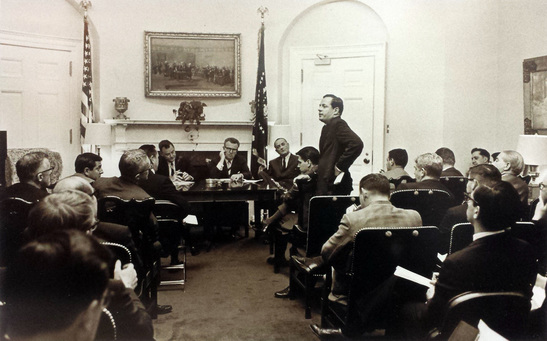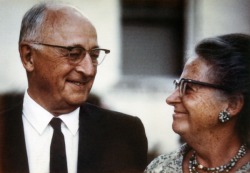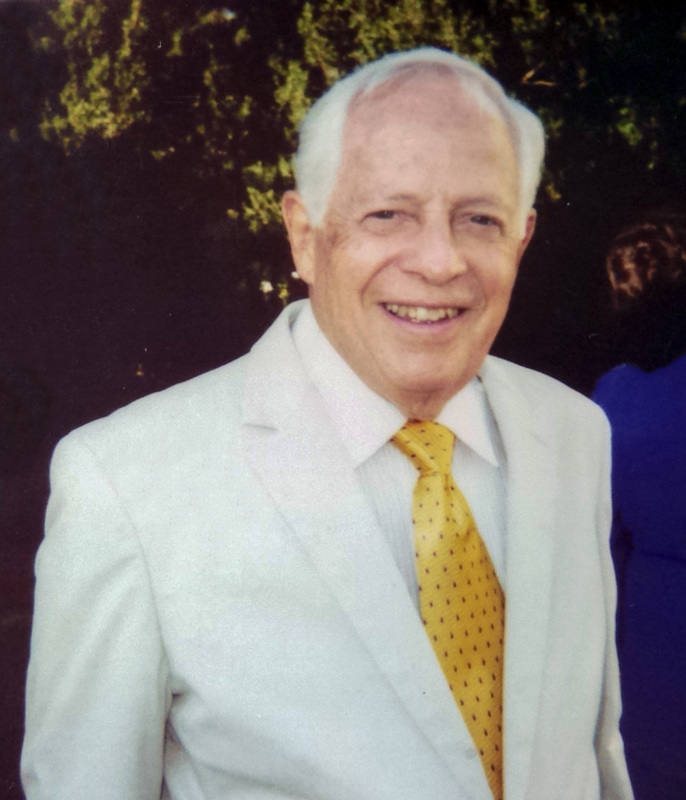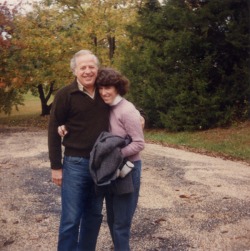BIOGRAPHY
|
William Conrad Gibbons was born in 1926 in Harrisonburg, Virginia to Howard and Jessie Gibbons. He was graduated from Harrisonburg High School and entered the University of Virginia in 1945. His studies were interrupted in order to serve in World War II for two years but he returned to finish his college education at Randolph-Macon in Ashland, Virginia and was graduated (B.A. in history and government) in 1949. While at Randolph-Macon, he was elected to four honorary fraternities, was president of the debating club and the literary society, in addition to being the student government officer and president of student government association of all Virginia colleges. He was in the Who’s Who of American Colleges and Universities. Dr. Gibbons went on to earn his Masters and Ph.D. in politics from Princeton University in 1961. He was Fellow for the Carnegie Endowment for International Peace in New York, and leader of two European study tours sponsored by the Endowment and was in the 1954-55 class of the American Political Science Association Congressional Fellowship Program.
|

In the late 1950's, William had seven years of first-hand experience with the U.S. Congress where he worked for both Senator Wayne Morse and Senator Mike Mansfield, first as a Congressional Fellow (selected along with nine other political scientists, lawyers and journalists in nationwide competition) working in both the House and Senate, and subsequently as a staff member in the House and Senate, and on Congressional Committees. For two years, Director of the Congressional Fellowship Program and Associate Director of the American Political Science Association. In 1960, he became Professional Staff Member of the Democratic Policy Committee and Assistant to the Majority Leader of the Senate, Senator Lyndon B. Johnson. He then assisted Senator Johnson in his campaign for the Presidency and then for Vice President. William remained on the Staff of the Policy Committee under its new Chairman, Senator Mansfield and resigned Senate position in February, 1962.
During seven years of Congressional experience, he was engaged in every aspect of legislative activity including writing speeches, bill-drafting, casework, committee reports. As assistant to the Majority Leader of the Senate, he was responsible for scheduling and clearance of legislation for Senate debate, advising the Legislative Review Committee on unanimous consent legislation, drafting statements and making suggestions about legislation, preparing memoranda on current domestic and world problems, and assisting with a wide variety of matters on the Floor of the Senate during the session.
In 1962, Dr. Gibbons ran for Congress from the Western District of Virginia, which covered his hometown of Harrisonburg but was defeated. He then returned to Washington to work as legislative program staff (62-63); Deputy Director (1963-65) and Director (1965-68) of Congressional Liaison for the Agency for International Development, Department of State.
At the beginning of the Nixon Administration, William Gibbons left Washington to set up and head the political science department at Texas A&M University. He went on to be a visiting professor at Wellesley College and worked briefly as the Senior Program Officer in charge of all historical activities for the American Revolution Bicentennial Commission. In 1972, Dr. Gibbons became a senior analyst for the Foreign Affairs Division (“FAND”) of the Library of Congress in Washington DC, where he stayed for twenty years. It was as a senior analyst at FAND that he authored the definitive five-volume set entitled “The U.S. Government and the Vietnam War.” In 1980 he became a visiting professor at George Mason University where he continued work on the series.
The series has been described by historians and journalists as: “By far the best books on the subject” (William Bundy), “The master of Vietnam research” (David Maraniss), “Magisterial” (Brian VanDeMark), “Bill is an overlooked hero…for people like myself, well, just watch how much his name comes up in the footnotes” (Paul Hendrickson), “One of the most valuable studies of the formulation of Vietnam policy during the Kennedy and Johnson administrations” (Stanley Karnow). This series was also a major resource for Robert S. McNamara’s book “In Retrospect” and for Stanley Karnow’s book, “Vietnam, A History” and his 26-part PBS series of the same name. “Senator Mansfield” written by Don Oberdorfer, was also greatly aided by the research from the Vietnam series by Gibbons.
During seven years of Congressional experience, he was engaged in every aspect of legislative activity including writing speeches, bill-drafting, casework, committee reports. As assistant to the Majority Leader of the Senate, he was responsible for scheduling and clearance of legislation for Senate debate, advising the Legislative Review Committee on unanimous consent legislation, drafting statements and making suggestions about legislation, preparing memoranda on current domestic and world problems, and assisting with a wide variety of matters on the Floor of the Senate during the session.
In 1962, Dr. Gibbons ran for Congress from the Western District of Virginia, which covered his hometown of Harrisonburg but was defeated. He then returned to Washington to work as legislative program staff (62-63); Deputy Director (1963-65) and Director (1965-68) of Congressional Liaison for the Agency for International Development, Department of State.
At the beginning of the Nixon Administration, William Gibbons left Washington to set up and head the political science department at Texas A&M University. He went on to be a visiting professor at Wellesley College and worked briefly as the Senior Program Officer in charge of all historical activities for the American Revolution Bicentennial Commission. In 1972, Dr. Gibbons became a senior analyst for the Foreign Affairs Division (“FAND”) of the Library of Congress in Washington DC, where he stayed for twenty years. It was as a senior analyst at FAND that he authored the definitive five-volume set entitled “The U.S. Government and the Vietnam War.” In 1980 he became a visiting professor at George Mason University where he continued work on the series.
The series has been described by historians and journalists as: “By far the best books on the subject” (William Bundy), “The master of Vietnam research” (David Maraniss), “Magisterial” (Brian VanDeMark), “Bill is an overlooked hero…for people like myself, well, just watch how much his name comes up in the footnotes” (Paul Hendrickson), “One of the most valuable studies of the formulation of Vietnam policy during the Kennedy and Johnson administrations” (Stanley Karnow). This series was also a major resource for Robert S. McNamara’s book “In Retrospect” and for Stanley Karnow’s book, “Vietnam, A History” and his 26-part PBS series of the same name. “Senator Mansfield” written by Don Oberdorfer, was also greatly aided by the research from the Vietnam series by Gibbons.
|
Bill Gibbons has been a friend to many scholars and historians in that he shares his knowledge and research willingly to anyone who asks. He is survived by his wife Patricia of Monroe Virginia, six children (Rob, Frances, Stephen, Gayle, Ashley, Justin) and seven grandchildren (Peter, Ben, Alex, Stephanie, Emma, Cecilia and Kobe) who live in California, Switzerland, North Carolina, New York, Virginia and Indiana.
|
Acknowledgement to Dr. Gibbons from Paul Hendrickson
from his book "The Living and the Dead"
Mentors. Too many to name, so I'll just have to name the one who floats above all the rest: William Conrad Gibbons. There is no one outside my family and editor to whom I owe a larger debt. I met this historian and scholar in 1985, within six months or so after I had begun this project. He was then a foreign-affairs specialist at the congressional research service at the Library of Congress. His own work on Vietnam, which had already involved years of research, was just coming to public light. To date, Bill Gibbons has published at Princeton University Press, four immensely respected volumes on the war, the latest of which brings the story of failed American policymaking up to January 1968. His current volume alone runs to nearly 1,000 pages of scholarship. Just to have the books would be a large aid for any author struggling with the war, but the truth is that, almost from the inception of our friendship, Bill has been willing to share whatever else he had, and I speak quite literally: He has given his time and advice; he has allowed me to see chapters-in-progress; he has given gratis hundreds of declassified documents from presidential libraries and other archives. It would have taken me years to acquire these documents on my own. Bill is semiretired now and lives in the folds of the Blue Ridge, and he and his wife, Pat, have taken on another amazing challenge, even as he goes on with the next volume in the series. I deeply miss our long walks around Capital Hill.
NOTE:
The information on this page is free to be shared and reproduced and is released under the Creative Commons-Attribution-Sharealike 3.0 license: http://creativecommons.org/licenses/by-sa/3.0/
-Gayle Gibbons Madeira



